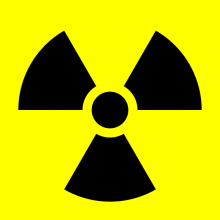With the United States out of the Iran nuclear deal, the Europeans are striving to keep the accord from collapsing. The Iranians, for now, are playing along—but on this condition: If they don’t receive the economic benefits promised them, they will not only exit the deal and go back to their old nuclear program, they’ll make it more advanced than ever. And they may just do it secretly, away from the eyes of international inspectors.
“If our interests are not materialized, we will withdraw from the nuclear deal and will enrich [nuclear fuel] to 20% degree or any level that we want out of their sight,” Government Spokesman Mohammad Baqer Nobakh was quoted by the Fars News Agency as saying last week.
Previously, Iran claimed to enrich uranium to 20%—a medical-research-level grade much higher than needed for nuclear energy and well on the path to the 90% enrichment needed for nuclear weapons. So exceeding the 20% threshold would actually make Iran a greater threat than before.
Fars noted that Nobakh’s threat to develop enhanced nuclear fuel out of sight could have been a reference to Iran no longer complying with intensified inspections called for under the nuclear pact, or truly secretive work shielded from the United Nations inspections done outside the nuclear deal. It very well could be the latter, given Iran’s track record of hiding their nuclear program.
The Israelis recently uncovered a treasure trove of documentation outlining Iran’s secret past nuclear weapons program—about which they have lied in saying it never existed—and which was still being preserved presumably so Iran could retain their nuclear know-how for the future.
While the weaknesses in the nuclear deal—which doesn’t address Iranian missile development and has restrictions that expire in the not-too-distant future, setting the stage for future Iranian nuke development—were enough to convince US President Donald Trump to back out, the Europeans are in a different camp.
European Union President Donald Tusk, in a press release last week, claimed the deal was “good” for Europe and even said they would consider ways to protect European business from being impacted by renewed US sanctions on Iran—effectively evading American sanctions.
“I want leaders to reconfirm that the EU sticks to the deal as long as Iran does,” said Tusk.
Ironically, he too highlighted the Iranian missile program as a concern that they should “seek” to “address.” But according to the Iranian government, that’s a nonstarter. Fars reported that a government statement following the US decision to exit the deal specifically decried efforts to get them to surrender “lawful” and “defensive” missiles.
Recently, Iran launched missiles from Syria at Israel in an unprecedented act of direct aggression between the sides.
Israeli Prime Minister Benjamin Netanyahu, meanwhile, believes that Trump was right in nixing the Iran deal—and he hinted that Europe is wrong on the issue.
“With all due respect to those sitting in European capitals, we here in the capitals of the Middle East—in Jerusalem, in Riyadh and elsewhere—we’ve seen the disastrous consequences of the Iran deal,” said Netanyahu in comments released by his office last week.
“And so when President Trump decides to pull out of this deal, to walk away from it, we know that when he walks away from a bad deal, he’s doing a good thing for our region, for the United States and for the world.”
(By Joshua Spurlock, www.themideastupdate.com, May 17, 2018)

